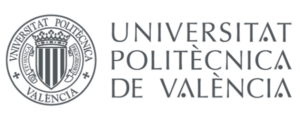Microbian Biodiversity of the Water Cycle (BIOMICA)
The research team of the Microbian Biodiversity of the Water Cycle Group mainly focuses its research activity on the study of pesticide toxicity, microbiology of biological systems, detection and survival of pathogenic microorganisms in water, and water chemistry.
Water Quality (CALAGUA)
Its research is focused on wastewater treatment developing technologies for the recovery and valorization of the resources present in these wastewaters.
Forestry Science and Technology (REFOREST)
The research group is composed of UPV staff from different departments and centers, who have as a common link, research in forestry and the environment from its ecological bases to the final product.
Environmental Impact Assessment (GEASE)
The Group’s extensive and experienced team, as well as its multidisciplinary nature, allows open lines of work in fields that are very different from the environment, but converge under common aspects: environmental impacts and aquatic systems.
Hydraulics and Hydrology
The Hydraulics and Hydrology staff have over 30 years experience of research and consultancy in hydrology, hydraulics and planning and management of water resources, as well as of mathematical and physical modelling of hydraulic and hydraulic-sedimentological flow phenomena related or not with hydraulic structures.
Hydrogeology
The Hydrogeology Group has extensive experience in the characterization of aquifer systems with applications in the fields of civil engineering, mining and the environment. The team has obtained important research and technological results in hydrogeology, conjunctive use of surface and groundwater, modeling and management of groundwater, and geostatistics applied to groundwater and subsurface flow and mass transport.
Water Resource Engineering (GIRH)
The Water Resources Engineering Group has more than 30 years of R+D+I experience in topics related to Water Resources Engineering in general, and with emphasis on the Planning and management of watersheds integrating quantitative, qualitative, economic, environmental and social aspects, and in the design, construction, exploitation and safety of hydraulic infrastructures.
Hydrological and Environmental Modelling (GIMHA)
The experience achieved by GIMHA’s members in the field of modelling the different processes and relationships that occur in water systems enables this group of researchers to provide consulting services to national and international public agencies and companies
Hydroeconomic Modelling (GIMHE)
The Hydroeconomic Modelling Group focuses its R&D&I on the economic valuation and improvement of water resources and environmental management, as well as the use of economic instruments to achieve a sustainable use and management of them.
Hydraulic Networks and Pressurised Systems (REDHISP)
The staff has experience in research on the implantation and exploitation of mathematical models of pressurised water distribution networks. Their main field of activity is modelling pressurised mains and irrigation networks with the support of Geographical Information Systems (GIS) and real-time centralised control systems (SCADA).
Nature-based Solutions research (SbN)
The Nature-based Solutions research group is based on its work on constructed wetlands that began in 2008 with support for the development of the Tancat de la Pipa (Confederación Hidrográfica del Júcar) and Tancat de Milia (ACUAMED) wetlands in the Albufera Natural Park of Valencia
Land and Atmosphere Remote Sensing (LARS)
The core research line at the LARS (Land and Atmosphere Remote Sensing) group is the development of methods for the space-based monitoring of bio/geophysical variables of the biosphere.

